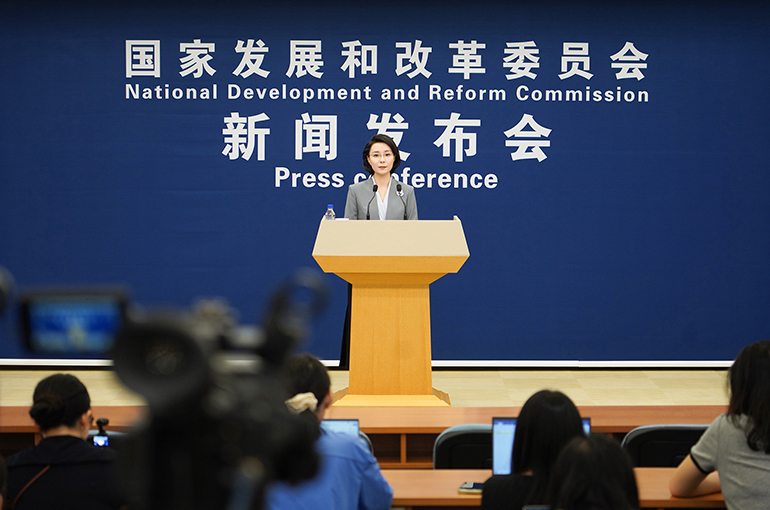 China to Roll Out USD71 Billion Funding Tool to Buttress Investment
China to Roll Out USD71 Billion Funding Tool to Buttress Investment(Yicai) Sept. 30 -- China plans to roll out a new CNY500 billion (USD71.4 billion) financing policy tool to bolster support for the real economy and spur effective investment.
The funds will be used entirely to replenish project capital, Li Chao, a spokesperson for the National Development and Reform Commission and its deputy head of policy research, told reporters in Beijing yesterday.
The new financing policy tool was proposed at the Politburo meeting in late April as part of a package to expand effective investment and get more funding to priority projects when private lending and local government fiscal headroom are constrained.
“The NDRC is working with relevant parties to speed up the allocation of funds from new policy-based financial instruments to specific projects,” Li said. “We will urge local governments to accelerate the start of project construction, create more tangible output as soon as possible, expand effective investment, and bolster stable and healthy economic growth.”
The tool could mobilize about CNY6 trillion (USD842.8 billion) in total investment, equivalent to 24 percent of last year’s broad-based infrastructure spending, noted Wang Qing, chief macro analyst at Golden Credit Rating. Once implemented, it could lift infrastructure investment by 3 to 4 percentage points a year over the next three years, Wang added.
If deployed this quarter, the instrument could optimistically trigger around CNY4.4 trillion in broad credit expansion, said Yi Wei, chief economist at Huatai Securities, adding that the resulting project activity could add about 2 points to infrastructure investment this year alone.
Planning documents from various regions indicate that the tool will focus on eight areas: the digital economy, artificial intelligence, the low-altitude economy, consumer infrastructure, green and low-carbon transition, agriculture and rural development, transport and logistics, and municipal and industrial parks.
It will function as a quasi-fiscal policy tool, helping local governments manage debt cycles while sustaining investment, Galaxy Securities said in a research note. Its primary aim is to ease equity shortfalls that often stall project work.
Analysts expect the instrument to tilt toward private companies. Private investment declined for the third consecutive month in August, falling 2.3 percent in the first eight months of the year.
The NDRC will soon bring out measures to further encourage private investment, with an emphasis on expanding opportunities for private capital in new productive forces, emerging services, new infrastructure, and other areas, Li said.
Private enterprises are both the main drivers of innovation in artificial intelligence and the pioneers of practical AI uses, Li said. The NDRC will use a range of policies to support the participation of companies, including private firms, in the national “AI+” initiative, she noted.
Editor: Martin Kadiev